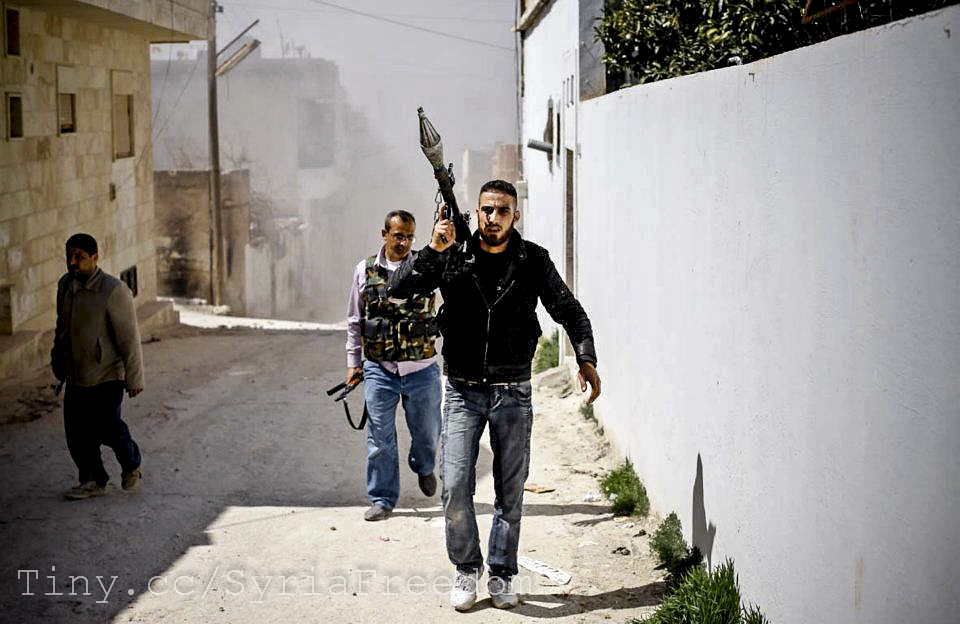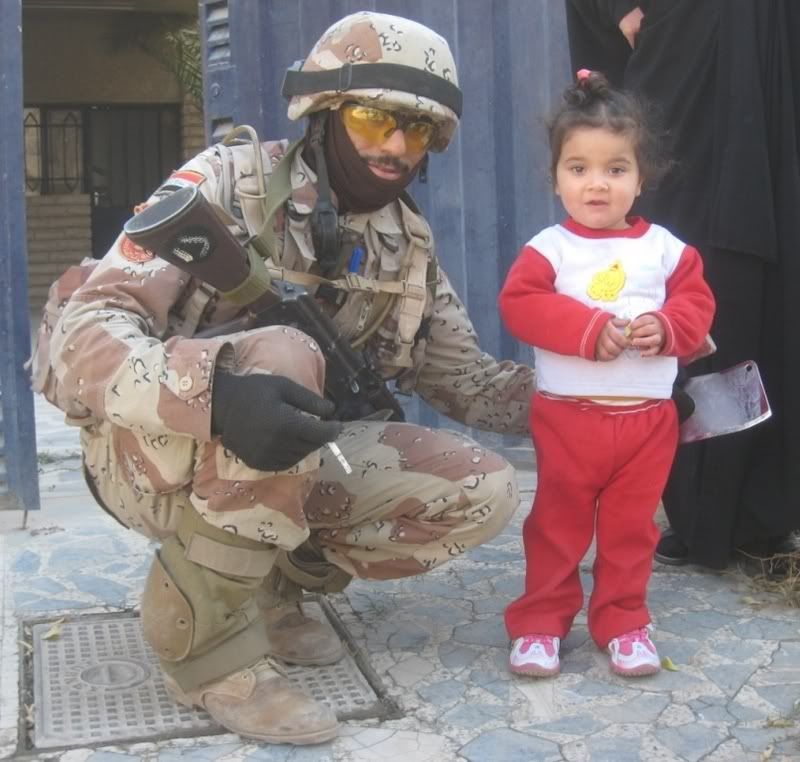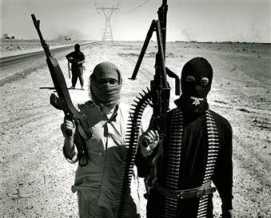 |
| Photo Freedom House via Flickr/Creative Commons |
Following the Syrian regime's line, the "anti-imperialist left" claim the rebels in Syria are all foreign-sponsored al-Qaeda throat-cutters, who want to turn a supposedly progressive Socialist secular state into a Taliban-style Islamic one. There are many things deeply problematic about this claim; it is at its heart deeply patronising, even orientalist. The Arabs of the Middle East are given no agency, they are forever pawns in machinations of the West (i.e. the US). Not only does this deny them agency, it also takes away the moral responsibility for their acts: if a Syrian rebel group decides to use a suicide bomb, well it's just because "they're al-Qaeda" and "they're being controlled by the Saudis/CIA/Mossad/Biderberg group/etc.". In actual fact those rebels should be answering for their actions just as the Syrian government should be. To me the moral case for the rebellion seems pretty clear; the Syrian regime has become a neo-monarchy, power passed from father to son; power that was, of course, gained originally in a military coup and maintained over the decades via violence, fear, corruption and co-option. The revolution began peacefully like elsewhere in the Arab Spring - protesters on the streets. But people power was met with regime bullets, mass arrests and torture. The anti-imperialists have to cling to the idea that those tens of thousands of unarmed Syrians on the streets in early 2011 were all "al Qaeda" or American stooges because, if not, then Bashar al-Assad's resort to brutal repression would be the crime that most know it is.
Nevertheless violence begets violence and the regime's reaction led to civil war. From Our Own Correspondent this week has a haunting illustration of this. Ian Pannell interviews an Aleppo businessman turned rebel commander. He was turned by the horrific torture he experienced and saw happening to others after being arrested for peacefully protesting:
"Dr Raouf said that before they were arrested, the group had long discussions about whether they should get some sticks to defend themselves during protests. 'But when we were released, we decided to buy every weapon we could afford,' he said."
 |
| Homs. Photo Freedom House via Flickr/Creative Commons |
I've seen many on the aforementioned "anti-imperialist left" say that the US/NATO is just itching to intervene in Syria, like it did in Libya. This is another bizarre claim in the face of now over a year of 'the West' failing to really do anything helpful for the people of Syria. Many in Syria were imploring the West to save them a year ago but the US electoral calendar, military exhaustion and budget deficit was always going to make this unlikely. If the Wahhabis of Saudi Arabia are the only people handing out money for guns, you can see why some Syrians will grow beards, shorten their trousers and take the cash, even if it is obvious to outsiders that only further darkness will come of this. Crisis Group leaves us with a horrible image for the future of the Syrian Civil War:
"As the number of internally displaced and refugees grows, and entire towns and neighbourhoods are damaged to the point of becoming uninhabitable, armed groups risk cutting themselves off further from their social base and coming to resemble combatants roaming in the rubble. As they eat, struggle and pray together, fighters increasingly form insular units detached from the cross-cutting popular movement from which they sprung, inhabiting their own world, so more prone to spin out of control. Their reportedly high attrition rate may empower second-generation leaders with less of a strategic vision, legitimacy or experience – lacunae for which they might seek to compensate with ever more radical beliefs and violence."The obvious and frightening parallel is Syria's neighbour to the east; six or seven years ago as the US lost control and civil war flared. But as the armed groups amongst the Sunni Muslims sections of Syrian society differentiate themselves on religious grounds, or by allegiance to one area or one commander, and whilst Alawi communities radicalize in support of the rump regime, other communities like Christians and Kurds will end up either defending themselves with militias or fleeing. Syria's neighbour to west, Lebanon, and the horrors it saw from the 70s to the 90s in its vicious and multifaceted civil war, serve as another stark example of what Syria may still have to face.
















